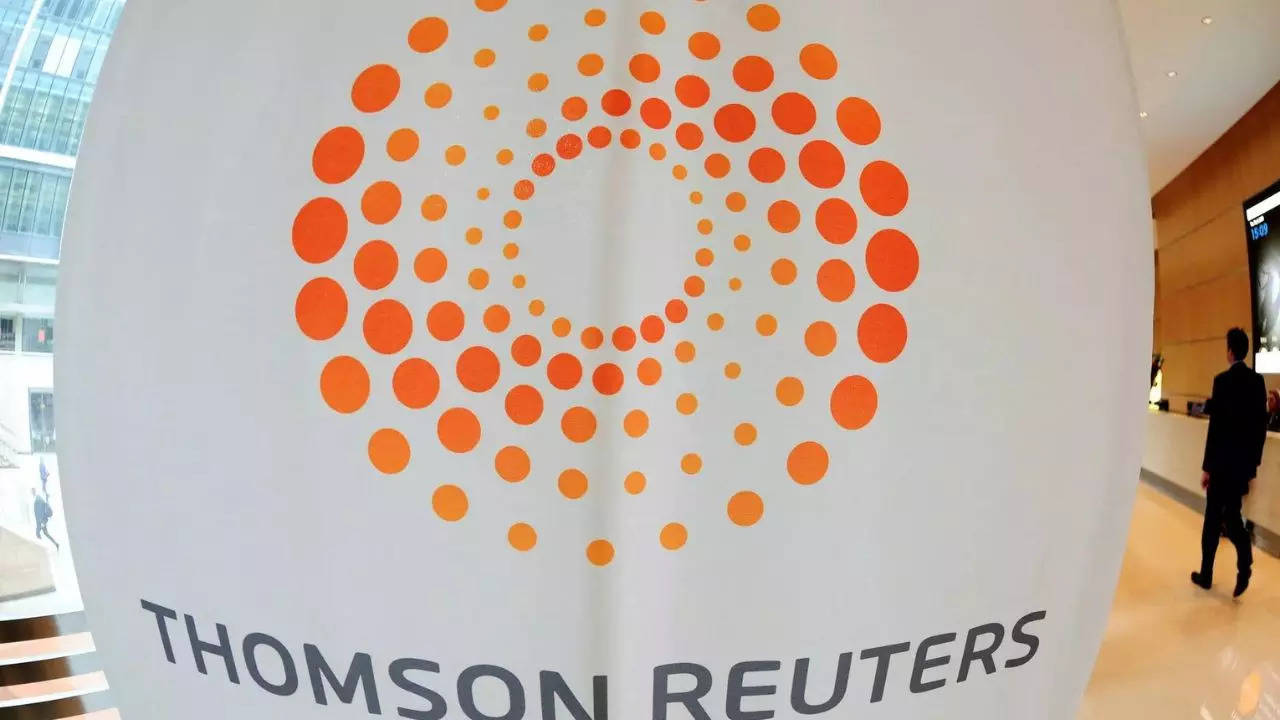
NEW YORK: Thomson Reuters Corp on Wednesday reported higher-than-expected third-quarter profit as its biggest divisions serving legal, tax and accounting professionals performed well amid an “uncertain macro environment.”
The provider of information and tools for lawyers, accountants and other professionals reported adjusted earnings of 82 cents per share, above analyst forecasts of 71 cents.
Total revenue rose 1% in the quarter to $1.59 billion, missing expectations of $1.61 billion, according to LSEG data.
Thomson Reuters, which owns the Westlaw legal database, Reuters news agency and the Checkpoint tax and accounting service, announced a new $1 billion share repurchase program, and maintained its 2023 outlook except for updates to depreciation and amortization, and interest expense.
CEO Steve Hasker said the company achieved “solid momentum” in the quarter despite “an uncertain macro environment,” and added “our confidence in generative AI continues to strengthen.”
Organic revenues in the Legal Professionals segment increased 6%, while total revenue fell 2%, reflecting sales of some divisions. Thomson Reuters sold a majority stake in Elite, a vendor of business management software for law firms, earlier this year to private equity firm TPG.
Organic revenues in the Reuters News division increased 3% in the quarter, driven by factors including a contractual price increase digital advertising revenue growth.
Thomson Reuters has said it will use a “build, partner and buy” strategy to incorporate generative AI solutions into its products and services, and has earmarked $10 billion for acquisitions and about $100 million per year in investments in AI capabilities.
Generative AI is a type of artificial intelligence that generates new content or data in response to a prompt, or question, by a user.
In August, the company closed its $650 million cash acquisition of Casetext, a California-based AI company that helps legal professionals conduct research, analysis and prepare documents using generative AI.
The provider of information and tools for lawyers, accountants and other professionals reported adjusted earnings of 82 cents per share, above analyst forecasts of 71 cents.
Total revenue rose 1% in the quarter to $1.59 billion, missing expectations of $1.61 billion, according to LSEG data.
Thomson Reuters, which owns the Westlaw legal database, Reuters news agency and the Checkpoint tax and accounting service, announced a new $1 billion share repurchase program, and maintained its 2023 outlook except for updates to depreciation and amortization, and interest expense.
CEO Steve Hasker said the company achieved “solid momentum” in the quarter despite “an uncertain macro environment,” and added “our confidence in generative AI continues to strengthen.”
Organic revenues in the Legal Professionals segment increased 6%, while total revenue fell 2%, reflecting sales of some divisions. Thomson Reuters sold a majority stake in Elite, a vendor of business management software for law firms, earlier this year to private equity firm TPG.
Organic revenues in the Reuters News division increased 3% in the quarter, driven by factors including a contractual price increase digital advertising revenue growth.
Thomson Reuters has said it will use a “build, partner and buy” strategy to incorporate generative AI solutions into its products and services, and has earmarked $10 billion for acquisitions and about $100 million per year in investments in AI capabilities.
Generative AI is a type of artificial intelligence that generates new content or data in response to a prompt, or question, by a user.
In August, the company closed its $650 million cash acquisition of Casetext, a California-based AI company that helps legal professionals conduct research, analysis and prepare documents using generative AI.
